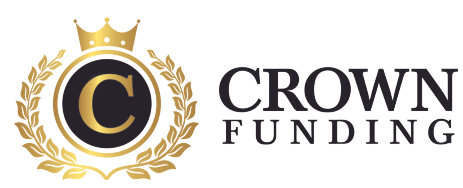
5 Things to Consider If Your Mortgage Is Renewed in 2023
Mortgage rates are rising, trigger rates are approaching, and many Canadians may be in for a surprise when it comes time to renew their home loan. With mortgage interest rates higher than they’ve been in over a decade, you may be in for some sticker shock when it comes time to renew your mortgage.
Understanding the mortgage renewal process and preparing in advance to pay a higher interest rate will make the transition easier for both you and your mortgage.
Higher interest rates could significantly increase payments.
The Bank of Canada increased its overnight rate rapidly in 2022 to slow decades of high inflation. Borrowers have been directly affected because lenders typically raise their prime rates when the Bank of Canada raises its overnight lending rate.
The Bank of Canada has raised its overnight interest rate six times since March, which now stands at 3.75%. As Canada continues to experience high inflation, another increase is expected before the end of the year.
Before these rate hikes, it was fairly common to find mortgage rates below 2%. Fixed and variable rate mortgages are now hovering around 6%.
Your monthly payments would have been around $2,180 if you had a $500,000 mortgage with a 2% interest rate and a 25-year amortization schedule. The same mortgage could cost closer to $3,200 per month or $12,240 more per year at current interest rates.
That is different from saying that your mortgage payments will increase similarly. The amount they rise depends on the interest rate you received when you started your last mortgage term. If you were approved at 4%, your next rate might be 2% higher than 4%, as in our previous example. That is still a substantial increase.
You may have reached your trigger rate before renewing.
If you have a variable-rate fixed-payment mortgage, recent interest rate increases may not have worried you too much because your payments haven’t changed. However, you pay less toward your principal and more interest whenever the overnight rate rises. This could be problematic.
If interest rates continue to rise, your monthly payments may not even cover the interest owed. At that point, you’re not only not accumulating equity but also need to keep up with your borrowing costs. Lenders include a trigger rate in your mortgage contract to avoid this scenario.
When the trigger rate is met, your lender should contact you and present you with several options. In general, there are four options in this scenario.
- Increase your payments: A larger monthly payment means more money for the principal. This will raise your trigger rate.
- Make a prepayment: A lump sum payment would also increase your trigger rate because prepayments are applied entirely to your principal.
- Please switch to a fixed-rate mortgage: A fixed-rate mortgage will protect you from future mortgage rate increases, but it will change your monthly payment requirements. Take the time to review your mortgage contract thoroughly, as your trigger rate should be clearly stated in writing. If you still need clarification about the details, feel free to contact your lender and ask any questions you have about your trigger rate as well as your overall mortgage options.
There is no re-qualification unless you change lenders.
Your lender should send you a mortgage renewal statement a few weeks or months before your mortgage term is set to expire, outlining your remaining mortgage balance and laying out a new mortgage offer, which will include the following;
- A new rate of interest.
- Payment schedule.
- The phrase.
- Any applicable charges or fees.
Comparing your current lender’s renewal offer with other mortgage lenders is a good idea because better deals may save you money. However, if you decide to switch lenders, you must re-qualify as a borrower, which includes passing the mortgage stress test when interest rates are exorbitantly high.
However, if you accept the mortgage renewal terms offered by your current lender, you will not need to re-qualify. Accepting the renewal offer can be advantageous for people in a difficult financial situation who may need help to qualify with a new lender for various reasons.
Choosing a shorter term could be advantageous.
Most Canadians choose a 5-year term for their mortgage, whether fixed or variable. However, mortgage rates are expected to rise further in 2023, so it may be time to consider a shorter term instead.
If interest rates rise, a shorter fixed-rate term of one to three years will protect you. Furthermore, because you’ll be locked in for a shorter period, you’ll be able to take advantage of lower rates if the market shifts in your favor without breaking your contract.
Regardless of the length of your term, variable-rate mortgages expose you to the same rate risks. If you choose a shorter time, you may benefit from a more significant rate discount when you renew, but you may also have to endure more rate increases before the Bank of Canada begins to draw down the overnight rate.
It is worthwhile to shop around.
It’s only possible to accept your lender’s mortgage renewal offer immediately if you have a stable income and reasonable debt service ratios. Your best bet is to shop around and compare mortgage rates from different lenders. You can always use the information you’ve gathered to try to get a better deal from your current lender.
Before switching lenders, keep in mind that there may be additional fees to consider, such as:
- Setup costs.
- Your current lender will charge you a discharge or transfer fee.
- Appraisal fee.
- The collateral charge has been removed.
While these fees are standard, a new lender may be willing to cover some or all of them to win your business. It never hurts to inquire.
Crown Funding Mortgage Broker is a Licensed Mortgage Specialist! Book Appointment Today
